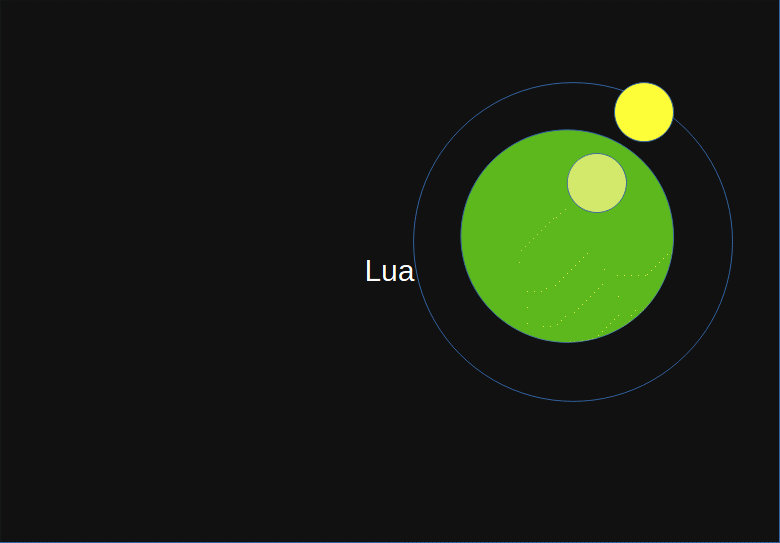A Comprehensive Guide to Lua Classes, Web, and Game Development
Lua is a lightweight, high-level, and embeddable scripting language that has found its niche in various programming fields, ranging from game development to web programming. This versatility and adaptability stem from Lua’s simplicity, speed, and ease of integration with other programming languages. Designed for embedded use in applications, Lua is commonly applied where there is a need for scripting capabilities within larger projects, especially those with real-time and performance demands. In this article, we will delve into the fundamentals of Lua, its unique application in web and game development, and the implementation of Lua classes with real-world sample code.
Table of Contents
A Comprehensive Guide to Lua Classes, Web, and Game Development
1. Introduction to Lua Language.
3. Lua as a Web Programming Language.
Example: A Simple Character Script in Lua.
Know the Famous games where Lua is used.
5. Real-World Sample Code in Lua.
1. Introduction to Lua Language
Lua, which means “moon” in Portuguese, was developed in the early 1990s by Roberto Ierusalimschy, Luiz Henrique de Figueiredo, and Waldemar Celes at the Pontifical Catholic University of Rio de Janeiro in Brazil. Initially created to address the limitations of existing languages in handling configuration and embedding tasks, Lua has since grown into a full-fledged programming language, extensively adopted worldwide.
One of the core reasons for Lua’s popularity is its compact and efficient design. Lua is a dynamically-typed language, with automatic memory management and a garbage collector, making it ideal for embedded systems and low-memory environments. Lua scripts are executed in an interpreter, meaning there is no compilation step, which leads to faster development cycles and ease of prototyping. Its minimalistic syntax and use of associative arrays as the primary data structure are aimed at keeping the language lightweight while remaining powerful and flexible for developers.
Lua stands out for its simplicity and extensibility, being highly compatible with other languages, notably C and C++. This interoperability allows Lua to be embedded as a scripting language within larger programs or to handle specific tasks within an application. Lua’s lightweight runtime environment, excellent performance, and minimal dependencies have made it the language of choice for applications that demand speed and efficiency, particularly in game development and web programming.
In this article, we’ll explore how Lua handles object-oriented programming (OOP) by implementing Lua classes. Then, we’ll investigate Lua’s role as both a web programming language and a game scripting language, examining each domain’s unique advantages. Finally, real-world sample code snippets will illustrate how Lua can be effectively used to structure classes, control game logic, and manage web scripting functionalities.
2. Using Classes in Lua
Although Lua is not inherently object-oriented, it provides powerful constructs to mimic classes, inheritance, and encapsulation. Lua accomplishes OOP principles through tables and metatables, giving developers a high degree of flexibility to create custom class-like structures.
2.1 Creating Classes Using Tables and Metatables
In Lua, classes are created using tables, which can store functions and data. Here’s a basic example of defining a simple Car class in Lua:
-- Define a Car class
Car = {}
Car.__index = Car
-- Constructor for the Car class
function Car:new(make, model)
local car = {}
setmetatable(car, Car)
car.make = make
car.model = model
return car
end
-- Define a method for Car
function Car:displayInfo()
print("Car Make: " .. self.make)
print("Car Model: " .. self.model)
end
-- Usage
local myCar = Car:new("Toyota", "Corolla")
myCar:displayInfo()
Afford the new style statement. Get the new Luxury. All New Apple iPhone 16 (128 GB) – Black ₹79,900
2.2 Inheritance in Lua Classes
Lua does not support traditional class inheritance, but it allows prototype-based inheritance by using metatables. To implement inheritance, we define a base class and extend it with additional methods for a derived class.
-- Define a base Vehicle class
Vehicle = {}
Vehicle.__index = Vehicle
function Vehicle:new(type)
local vehicle = {}
setmetatable(vehicle, Vehicle)
vehicle.type = type
return vehicle
end
function Vehicle:displayType()
print("Vehicle Type: " .. self.type)
end
-- Define a derived Car class inheriting from Vehicle
Car = setmetatable({}, { __index = Vehicle })
Car.__index = Car
function Car:new(make, model)
local car = Vehicle:new("Car")
setmetatable(car, Car)
car.make = make
car.model = model
return car
end
function Car:displayInfo()
self:displayType()
print("Make: " .. self.make .. ", Model: " .. self.model)
end
-- Usage
local myCar = Car:new("Toyota", "Camry")
myCar:displayInfo()In this example, Car inherits properties and methods from Vehicle. This is accomplished by setting Car’s metatable’s __index to Vehicle, allowing Car instances to use Vehicle’s methods as if they were its own.
3. Lua as a Web Programming Language
Lua’s lightweight design makes it suitable for web programming, particularly in handling dynamic content, server-side scripting, and API integration. Although Lua is not as commonly used in web development as languages like JavaScript or Python, it has carved out specific niches where its strengths shine, especially in frameworks like OpenResty, a high-performance web platform based on Nginx and LuaJIT.

3.1 OpenResty and LuaJIT for Web Development
OpenResty leverages Nginx’s asynchronous I/O model with LuaJIT (a just-in-time compiler for Lua) to enable fast, scalable web applications. LuaJIT’s performance enables Lua to handle thousands of requests per second, making it ideal for tasks like API development, load balancing, and real-time analytics.
Here’s a simple example of using Lua with OpenResty for a web API that returns JSON data:
-- Lua code for an OpenResty endpoint
ngx.header.content_type = 'application/json'
local response = {
message = "Hello, Lua Web!",
timestamp = os.date("!%Y-%m-%dT%H:%M:%SZ")
}
ngx.say(require("cjson").encode(response))3.2 Lua for Scripting and Template Rendering
Another web application of Lua is for templating and scripting. Using Lua in templating engines allows developers to embed Lua scripts directly in HTML files, dynamically generating pages based on the backend’s logic.
3.3 Advantages and Limitations in Web Programming
Advantages:
- Performance: LuaJIT offers high execution speeds.
- Low Memory Usage: Lua’s memory footprint is minimal, which is ideal for high-performance applications.
- Embedded Usage: Lua is easy to integrate with other languages, making it useful in hybrid applications.
Limitations:
- Community Size: Lua has a smaller developer community compared to other web languages.
- Limited Libraries: The ecosystem lacks the extensive libraries available for languages like Python or Node.js.
4. Lua in Game Development
Lua’s most notable application is in game development, where it serves as a scripting language for many popular game engines, including Unity, Roblox, and CryEngine. Lua’s lightweight nature, ease of integration, and high performance make it ideal for scripting gameplay logic, AI, and UI elements.
4.1 Lua as a Scripting Language in Game Engines
Many game engines embed Lua as a scripting language to define game mechanics, enabling designers and developers to implement complex interactions without modifying the engine’s core code. Lua’s flexibility allows developers to create intricate game logic and AI behaviors.
Example: A Simple Character Script in Lua
Below is an example script defining a basic character class in a game:
Character = {}
Character.__index = Character
function Character:new(name, health)
local char = {}
setmetatable(char, Character)
char.name = name
char.health = health
return char
end
function Character:takeDamage(damage)
self.health = self.health - damage
if self.health <= 0 then
print(self.name .. " has been defeated!")
else
print(self.name .. " has " .. self.health .. " health left.")
end
end
-- Usage
local hero = Character:new("Hero", 100)
hero:takeDamage(20)
hero:takeDamage(90)4.2 Lua’s Integration with Game Engines
Engines such as Roblox Studio and Corona SDK use Lua as the primary scripting language, making it indispensable in developing and customizing games on these platforms. In Roblox, Lua powers game logic, handling everything from character movements to in-game currency transactions.
4.3 Advantages and Limitations of Lua in Gaming
Advantages:
- Easy Learning Curve: Lua’s simple syntax and structure make it accessible for beginners.
- Lightweight and Fast: Lua’s low resource usage ensures high performance.
- Embedded Flexibility: Lua’s integration with game engines allows it to control complex game mechanics.
Limitations:
- Limited Functionality in Standalone: Lua needs to be embedded within a game engine for practical use, as it lacks comprehensive graphics or physics libraries on its own.
- Small Community Support: Although Lua is popular in certain engines, its community is still smaller than that of other game development languages.
Know the Famous games where Lua is used
Lua has been widely used in the gaming industry, primarily for scripting, game logic, and configuration. Here are seven notable games that have leveraged Lua as their scripting language:
1. Roblox
- Description: Roblox is a massively multiplayer online game platform that allows users to create and share their own games using Lua. Lua powers almost every aspect of game logic, physics, and user interactions, making it essential for Roblox developers.
- Lua Usage: Lua is used by developers to build interactive environments, manage assets, and create game mechanics. The platform also provides a Lua-based API to streamline game creation.
2. World of Warcraft (WoW)
- Description: World of Warcraft, one of the most popular MMORPGs (Massively Multiplayer Online Role-Playing Games), uses Lua extensively for its UI customization and modding system.
- Lua Usage: Lua enables players and developers to create add-ons for the game’s interface, such as custom action bars, HUDs, and quest trackers. This extensibility through Lua is a key factor in WoW’s enduring community support.
3. Angry Birds
- Description: The globally popular puzzle game by Rovio Entertainment, Angry Birds, uses Lua for game scripting across various versions and platforms.
- Lua Usage: Lua scripts handle in-game physics interactions, character actions, and event handling. Its cross-platform compatibility was crucial for Angry Birds’ success across mobile devices.
4. Civilization V
- Description: Civilization V, a renowned turn-based strategy game developed by Firaxis Games, uses Lua for modding and scenario scripting.
- Lua Usage: Lua allows modders to create unique scenarios, modify gameplay mechanics, and introduce new features. Firaxis provided a Lua API for modding, enabling fans to create custom civilizations, events, and maps.
5. Far Cry Series (Far Cry and Far Cry 2)
- Description: Far Cry and Far Cry 2, open-world first-person shooters by Ubisoft, used Lua for scripting game mechanics, AI behavior, and mission triggers.
- Lua Usage: Lua scripts govern the AI’s decision-making processes, environmental interactions, and event handling, allowing developers to create immersive and responsive gameplay experiences.
6. Garry’s Mod
- Description: Garry’s Mod (GMod), a physics sandbox game built on Valve’s Source engine, allows players to manipulate objects and experiment with the game world. Lua is at the heart of GMod’s modding system.
- Lua Usage: Lua is used extensively for creating custom mods, including weapons, tools, and game modes. It enables players to create virtually any type of game within the GMod environment, from role-playing to sandbox games.

7. The Sims 4
- Description: The Sims 4, a popular life simulation game by Electronic Arts, uses Lua for certain elements of gameplay scripting.
- Lua Usage: Lua scripting manages aspects of the character AI, object interactions, and in-game events, providing flexibility for modders and developers to expand upon the game’s base mechanics.
These games showcase Lua’s strengths in scripting, modding, and handling complex game mechanics. Its lightweight, embeddable nature makes Lua an ideal choice for game engines that require fast execution and high performance, particularly for complex simulations and user-generated content.
5. Real-World Sample Code in Lua
Here, we’ll implement a more complex real-world Lua script that combines aspects of OOP, as well as usage in a gaming context.
-- Define a GameObject class
GameObject = {}
GameObject.__index = GameObject
function GameObject:new(name, x, y)
local obj = {}
setmetatable(obj, GameObject)
obj.name = name
obj.x = x or 0
obj.y = y or 0
return obj
end
function GameObject:move(dx, dy)
self.x = self.x + dx
self.y = self.y + dy
print(self.name .. " moved to (" .. self.x .. ", " .. self.y .. ")")
end
-- Define a Player class inheriting from GameObject
Player = setmetatable({}, { __index = GameObject })
Player.__index = Player
function Player:new(name, x, y, health)
local player = GameObject:new(name, x, y)
setmetatable(player, Player)
player.health = health or 100
return player
end
function Player:takeDamage(damage)
self.health = self.health - damage
print(self.name .. " has " .. self.health .. " health left.")
if self.health <= 0 then
print(self.name .. " is defeated!")
end
end
-- Usage
local hero = Player:new("Hero", 10, 20, 100)
hero:move(5, -10)
hero:takeDamage(25)This code snippet exemplifies how Lua can be used to define objects and classes within a gaming context, demonstrating Lua’s capability in handling game logic.
Conclusion
Lua is a versatile, high-performance language with significant applications in game development and web programming. Its simplicity, combined with the power of tables and metatables, makes Lua a surprisingly adaptable language for OOP, even without traditional classes. Through its integration with engines like OpenResty for web applications and Roblox or Corona SDK for games, Lua empowers developers to build dynamic applications. With its ease of embedding and rapid execution speed, Lua continues to hold a unique place in embedded scripting and game development, proving itself an invaluable tool for programmers looking for an efficient, minimalist language.
Curated for you





![[keyword]](https://learnxyz.in/wp-content/uploads/2026/02/Power-the-future-of-FreeBSD.png)
I want to thank you for your assistance and this post. It’s been great.
Hmm it looks like your website ate my first comment (it was super long) so I guess I’ll just sum it up what I wrote and say, I’m thoroughly enjoying your blog. I as well am an aspiring blog writer but I’m still new to the whole thing. Do you have any points for inexperienced blog writers? I’d really appreciate it.
A big thank-you for spending your time with us! Your support inspires us every day.
Magnificent beat I would like to apprentice while you amend your site how can i subscribe for a blog web site The account helped me a acceptable deal I had been a little bit acquainted of this your broadcast offered bright clear idea